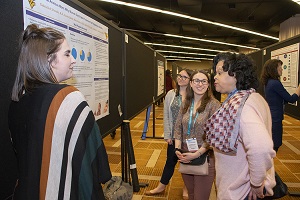Sandra Llera, PhD, is an Associate Professor at Townson University. Dr. Llera’s research focuses on anxiety disorders, with an emphasis on the further development and exploration of an emotional contrast avoidance model as a new way to understand worry and emotion dysregulation in generalized anxiety disorder (GAD) . Research is conducted on three levels of observation, including self-report, behavioral observation, and psychophysiological responding. Clinically, Dr. Llera specializes in adult psychopathology, with a specific emphasis in anxiety disorders. Dr. Llera has conducted group and individual therapy, as well as psychological assessments.
Dr. Llera received her BA in Psychology in 2002 from the University of Delaware and a PhD in Clinical Psychology in 2011 from Penn State University. Dr. Llera’s dissertation focused on the emotional sequelae of chronic worry in generalized anxiety disorder (GAD). She completed her clinical internship at the University of Virginia counseling center, and a year of post-doctoral teaching as an adjunct faculty at George Mason University.













